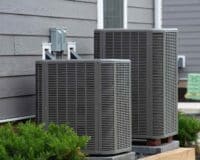 According to a new scientific breakthrough, water freezes when exposed to below freezing temperatures. All kidding aside, winter is coming, and with comes cold weather, so you should make sure your pipes are prepared to withstand its entirety. When pipes freeze, it creates a huge nuisance for you, the homeowner. And if those pipes burst, that problem only gets worse. Water damage is expensive and time-consuming to repair (no one wants that), so here are some tips and tricks you should take note of to ensure a hassle-free winter season.
According to a new scientific breakthrough, water freezes when exposed to below freezing temperatures. All kidding aside, winter is coming, and with comes cold weather, so you should make sure your pipes are prepared to withstand its entirety. When pipes freeze, it creates a huge nuisance for you, the homeowner. And if those pipes burst, that problem only gets worse. Water damage is expensive and time-consuming to repair (no one wants that), so here are some tips and tricks you should take note of to ensure a hassle-free winter season.
- Drain Your Pipes
This goes for all pipes in your home, especially ones that are outside your home or are not insulated. All hoses, gutters, and other outdoor pipes should be free of water and, if possible, stored away to prevent them from freezing. Removing water in unnecessary or unused pipes will ensure that you won’t need to be replacing them come spring time.
- Insulate, Insulate, Insulate
The entirety of your home is, most likely, not completely insulated. Basements, attics, garages, crawl spaces, and underneath cabinets are all common places where we don’t think we need to insulate. But the reality is, in freezing temperatures (especially below 20 degrees), the pipes that run through these areas can freeze and burst if they are not properly insulated. So, it’s recommended that you do insulate both hot and cold water pipes in these areas to make sure they won’t need replacement.
- Keep it Running
On really cold days (below freezing), you should always let a tiny bit of water run through your faucets. Why? Opening your faucets relives the water pressure when there is ice buildup in the pipes, basically ensuring they won’t burst. If there is a hot and cold line to the faucet, run them both to relieve the pressure in each one.
If you take these steps to combat frozen pipes this winter, chances are, you won’t need to repair them come March. If, however, you do end up with frozen pipes, don’t worry; it’s not the end of the world. If you turn your faucet on, and only a drip or two comes out, you should suspect a frozen pipe is the culprit. Let the water run through the frozen pipe to start the melting process, and also apply heat to the affected section if at all possible. Of course, if the problem is out of your control or if you just need to talk to an expert, call Greenwood Plumbing and Heating. We’ll get you through it.


